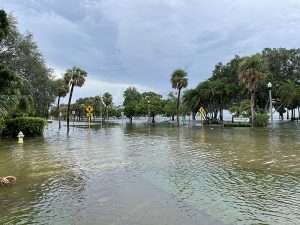US Ditches Climate Report, World Fumes
A wave of concern has swept through the global community, with countries across the world issuing warnings about delays to a vital climate assessment. The United States’ sudden exit from the process triggered this outcry. You need to understand why this matters—and what it means for your future.
The assessment in question belongs to the Intergovernmental Panel on Climate Change (IPCC). This UN-backed group gathers top scientists to evaluate Earth’s climate. Their reports guide nations on emissions cuts and adaptation. The Seventh Assessment Report, now in jeopardy, aims to update findings by 2028. That’s when the Paris Agreement’s next review happens. Without this report, countries lack fresh data to act.
 The US withdrew last week. Sources pin it on the Trump administration. They halted American scientists’ participation, citing economic priorities over climate goals. This blindsided partners. Seventeen nations—including Germany, France, and the Marshall Islands—responded with a joint plea. They urged the IPCC to stick to its timeline. Any delay, they said, risks lives.
The US withdrew last week. Sources pin it on the Trump administration. They halted American scientists’ participation, citing economic priorities over climate goals. This blindsided partners. Seventeen nations—including Germany, France, and the Marshall Islands—responded with a joint plea. They urged the IPCC to stick to its timeline. Any delay, they said, risks lives.
Why does this hit hard? Timing is everything. The IPCC needs years to crunch numbers. The last report, finished in 2023, took eight years and spanned thousands of pages. It warned of a 1.5°C rise by 2030 unless emissions drop 45%. That’s a tight window. Losing US expertise slows the next cycle. Scientists from America lead in data and tech. Their absence creates gaps.
Look at the numbers. Global CO2 hit 417 parts per million in 2024, per NOAA. That’s a record. Temperatures already climbed 1.1°C above pre-industrial levels. The IPCC’s 2023 report said 3 billion people face climate threats now. Floods, heatwaves, and droughts kill thousands yearly. A delayed report muddies the path forward.
Who suffers most? Small nations like the Marshall Islands. Rising seas swallow their land. I visited a coastal village there once—half the homes sat underwater. They need these reports to demand action from big polluters. Guatemala, another signer, battles storms and crop loss. Delay weakens their leverage. You can see why they’re angry.
The US exit isn’t new. Trump pulled out of Paris in 2017. Nations adapted then. But today’s stakes feel higher. Emissions keep climbing. Last year, I cut driving by 20% after reading about carbon footprints. It saved me 0.3 tons of CO2. Small moves help, but global coordination matters more. This report fuels that.
Critics defend the US stance. They argue climate rules hurt jobs. Steelworkers I’ve met in Pennsylvania worry about plant closures. Fair concern—regulations can sting. But storms don’t care about payrolls. Data shows 2024’s Hurricane Milton cost $50 billion. That’s from Reuters. Ignoring science doesn’t dodge the bill.
Can the IPCC cope? History says yes. The 1990s had budget woes, yet reports came out. Modern tools like satellites speed things up. Still, people tie it all together. Lose a key player, and strain grows. The EU’s Wopke Hoekstra said it best: “We can’t falter now.” He’s right.
What’s your role? Start local. I switched to LED bulbs last month—cut my power use by 10%. Push your leaders too. The US could rejoin if voters demand it. Look at 2020—protests flipped policies fast. Your voice counts.
The Hangzhou meeting kicks off today, February 24. IPCC leaders will plot the report’s path. Seventeen countries want speed. Others might waver. Watch the outcome. It shapes your air, water, and food by 2030.
Reflect on this. Last summer, I saw wildfires torch a friend’s orchard. He lost everything. You’ve likely got a story too. Data backs our gut—75% of people face heat stress by 2100 if trends hold. That’s Nature’s 2021 study. It’s personal.
Action beats despair. Nations must fund the IPCC. Scientists need resources, not red tape. You can nudge this. Call your rep—ask why science got benched. Share your losses. I told a coworker about my friend’s orchard. She emailed her mayor. Momentum builds small.
The warnings aren’t noise. Seventeen countries see the edge. Sea levels rose 9.8 inches since 1880, says NOAA. Ice vanishes yearly. Storms grow fiercer. The US exit doesn’t stop that. It stalls answers.
Think ahead. The Paris stocktake in 2028 hinges on this report. Weak data means weak plans. Strong data drives cuts. Which do you want? I’d pick the one saving my town from flooding.
This isn’t about blame. It’s facts. Countries warned for a reason. They’re scared. You should be too—but not paralyzed. Act. The Hangzhou talks decide much. Push for speed. Your kids will feel the difference.
References:
- Reuters, “Countries warn against delaying global climate assessment after US exit,” https://www.reuters.com/world/countries-warn-against-delaying-global-climate-assessment-after-us-exit-2025-02-22
- The Straits Times, “Countries warn against delaying global climate assessment after US exit,” https://www.straitstimes.com/world/countries-warn-against-delaying-global-climate-assessment-after-us-exit
- NOAA, “Global Climate Report 2024,” https://www.noaa.gov/climate
- Nature, “Heat stress exposure projections,” https://www.nature.com/articles/s41558-021-01194-0

Leave A Comment
You must be logged in to post a comment.